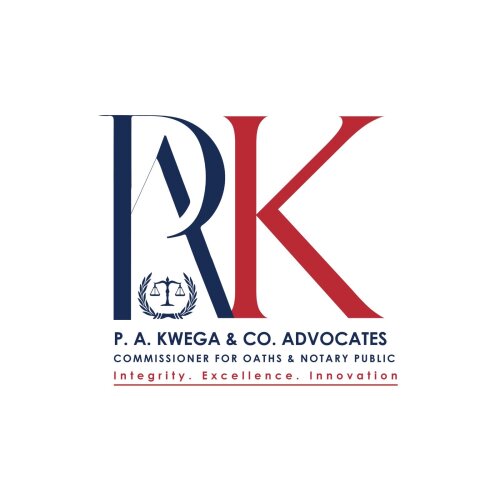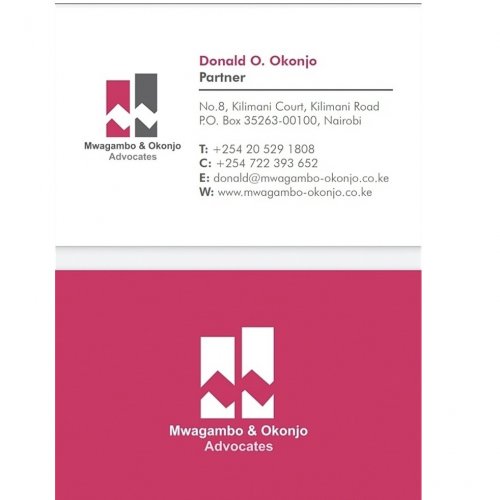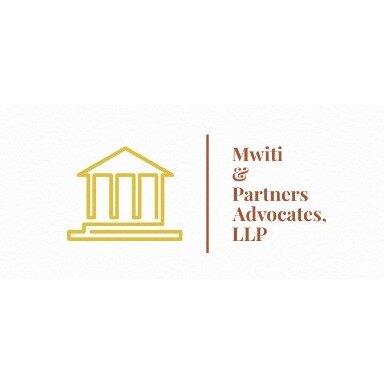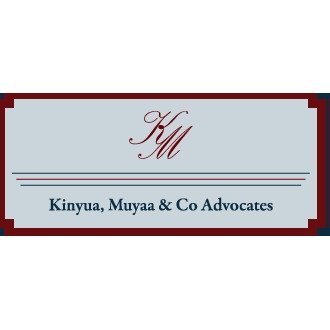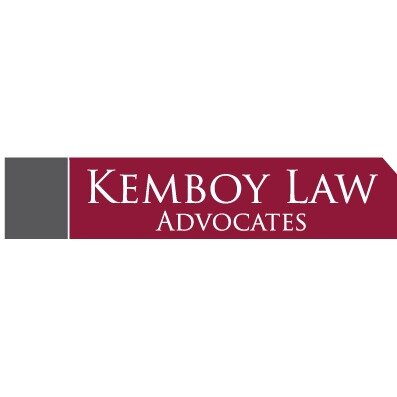Best Bankruptcy & Debt Lawyers in Kenya
Share your needs with us, get contacted by law firms.
Free. Takes 2 min.
Or refine your search by selecting a city:
List of the best lawyers in Kenya
Legal guides written by Adroit Law LLP:
- Kenya Launches Digital Nomad Visa: A Gateway for Remote Workers
- Navigating the Payment System License Maze in Kenya
- Navigating the Complexities of Mining Licenses and Permits in Kenya: A Look into Artisanal and Large-Scale Operations
Kenya Bankruptcy & Debt Legal Articles
Browse our 1 legal article about Bankruptcy & Debt in Kenya written by expert lawyers.
- Debt Collection Agencies in Kenya: What You Need to Know
- As legal professionals, advising clients on debt matters or engaging third parties for recovery requires navigating a complex landscape. Concerns surrounding the methods and effectiveness of debt collection agencies in Kenya are common, alongside critical questions about compliance and ethical conduct within the debt recovery process in Kenya.In Kenya's dynamic... Read more →
About Bankruptcy & Debt Law in Kenya
Bankruptcy & Debt Law in Kenya is governed by several legal frameworks designed to help individuals and organizations manage insolvency and debt issues. With the introduction of the Insolvency Act No. 18 of 2015, Kenya has modernized its approach to handling debtor-creditor relations and insolvency processes. This law provides a structured process for the discharge of debts and allows for the reorganization of companies to continue operations despite financial difficulties. As a developing economy, Kenya recognizes the importance of enabling businesses and individuals to recover from financial distress through legal avenues.
Why You May Need a Lawyer
Navigating bankruptcy and debt matters can be complex and daunting, particularly without legal expertise. Here are common situations where legal assistance may be necessary:
- Filing for bankruptcy: To ensure compliance with required legal procedures and maximize your chances for debt discharge or reorganization.
- Debt negotiation: To help negotiate with creditors for better terms or to settle debts amicably.
- Understanding legal rights and obligations: To gain clarity on your rights and responsibilities under the Insolvency Act.
- Handling court proceedings: To represent your interests in court if legal action is taken against you.
- Asset protection: To receive advice on how best to safeguard personal or business assets during insolvency proceedings.
Local Laws Overview
The Insolvency Act No. 18 of 2015 is the cornerstone of bankruptcy and debt law in Kenya. Key aspects include:
- Voluntary and Involuntary Bankruptcy: Procedures are defined for both voluntary bankruptcy filings and involuntary ones initiated by creditors.
- Insolvency Practitioners: Introduction of licensed professionals to manage insolvency processes and provide advice.
- Corporate Insolvency: Includes administration, liquidation, and company voluntary agreements to help businesses in distress.
- Debt Composition Schemes: Alternative arrangements and compromise with creditors are encouraged.
- Protection Orders: Provides temporary relief to debtors from the actions of creditors during debt restructuring or bankruptcy proceedings.
Frequently Asked Questions
1. What happens when I file for bankruptcy in Kenya?
Filing for bankruptcy initiates a legal process where a trustee is appointed to manage your bankruptcy estate, liquidate assets, and distribute proceeds to creditors following the provisions of the Insolvency Act.
2. Can businesses in Kenya file for bankruptcy?
Yes, businesses can file for bankruptcy. The Insolvency Act provides mechanisms for corporate insolvency, including administration and liquidation.
3. How long does the bankruptcy process take in Kenya?
The duration of bankruptcy proceedings can vary significantly depending on the complexity of the case. Typically, the process may take several months to years to conclude.
4. What debts can be discharged through bankruptcy?
Not all debts are dischargeable. Typically, unsecured debts like credit card debt or medical bills can be discharged, but obligations like taxes, child support, and court fines may not be.
5. What are the alternatives to bankruptcy?
Alternatives include negotiating debt settlements, entering into debt management plans, or pursuing formal debt composition schemes.
6. Can I keep my assets after filing for bankruptcy?
Some assets may be exempt depending on individual circumstances and applicable laws, but non-exempt assets could be liquidated to repay creditors.
7. How does the court decide who gets paid first in bankruptcy?
Under the Insolvency Act, there is a specific order of priority, with secured creditors typically being paid first, followed by unsecured creditors.
8. What is the role of an insolvency practitioner?
An insolvency practitioner administers the bankruptcy process, liquidates assets, and ensures fair distribution to creditors.
9. Will bankruptcy affect my credit rating?
Yes, filing for bankruptcy will negatively impact your credit report and may remain on it for several years, affecting your ability to secure future credit.
10. Can bankruptcy filings be contested in Kenya?
Yes, bankruptcy filings can be contested, especially if creditors believe the debtor has been dishonest or has not disclosed all assets.
Additional Resources
To further assist individuals and businesses with bankruptcy and debt issues, consider reaching out to:
- The Official Receiver under the Office of the Attorney General for advice on insolvency processes.
- The Law Society of Kenya for a list of qualified insolvency lawyers.
- Kenya Bankers Association for guidance on financial products and services.
- Consumer Debt Management Services for advice on managing personal financial liabilities.
Next Steps
If you're facing bankruptcy or debt-related challenges, the following steps may help:
- Assess your financial situation to understand the scope of your debts.
- Consult with a legal professional specializing in bankruptcy and debt law for personalized advice.
- Gather all relevant financial documents and information that will be critical for legal consultations and proceedings.
- Explore and consider alternative solutions to bankruptcy, like debt negotiation or management plans.
- If bankruptcy is deemed the best option, prepare to engage with insolvency practitioners to begin the process formally.
Lawzana helps you find the best lawyers and law firms in Kenya through a curated and pre-screened list of qualified legal professionals. Our platform offers rankings and detailed profiles of attorneys and law firms, allowing you to compare based on practice areas, including Bankruptcy & Debt, experience, and client feedback.
Each profile includes a description of the firm's areas of practice, client reviews, team members and partners, year of establishment, spoken languages, office locations, contact information, social media presence, and any published articles or resources. Most firms on our platform speak English and are experienced in both local and international legal matters.
Get a quote from top-rated law firms in Kenya — quickly, securely, and without unnecessary hassle.
Disclaimer:
The information provided on this page is for general informational purposes only and does not constitute legal advice. While we strive to ensure the accuracy and relevance of the content, legal information may change over time, and interpretations of the law can vary. You should always consult with a qualified legal professional for advice specific to your situation.
We disclaim all liability for actions taken or not taken based on the content of this page. If you believe any information is incorrect or outdated, please contact us, and we will review and update it where appropriate.
Browse bankruptcy & debt law firms by service in Kenya
Kenya Attorneys in related practice areas.
Browse bankruptcy & debt law firms by city in Kenya
Refine your search by selecting a city.







